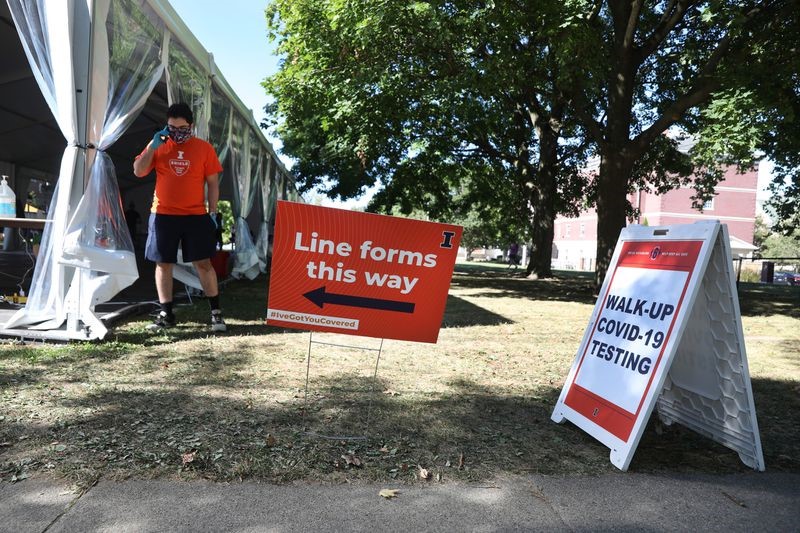By: Vismaya Jayakumar, Master of Urban Planning
Along with igniting tremendous trauma in millions of people around the world, COVID-19 pandemic has highlighted various inequities in access to health, education, food, mobility and more. The impact of the pandemic on vulnerable populations has brought to light several previously overlooked issues. One of the most vulnerable groups is international students, yet their issues are often overlooked by decision-makers.
Over the last several years, University of Illinois at Urbana-Champaign has proudly housed thousands of international students (with an average growth rate of 4.6%). International students currently make up more than 22% of the student body at the university (more here), bringing new cultural ideas and prosperity. Amidst the chaos of the pandemic, travel bans, airport closures, rising unemployment rates, overseas money transfer struggles, ICE’s alarming notices, racism and xenophobia, and a feeling of isolation in a foreign country, one other issue the pandemic has underscored is the alienation of international students in academia resulting in, what I call, Academic Homesickness.

COVID-19 testing site at the University of Illinois, Urbana-Champaign
Source: Chicago Tribune (https://www.chicagotribune.com/coronavirus/ct-covid-19-fall-enrollment-illinois-colleges-20200909-goq66touoregdetibhwc5ikiha-story.html)
Coming from a particular educational context, having read a different set of scholarship all through our educational careers, in our initial semesters here, many of us sit and stare at an assigned reading for a class and wonder how different it is. While this variance in perspectives undoubtedly adds to our knowledge, it also reduces opportunities for us to effectively bring our own ideas with confidence. In parallel, we who travelled thousands of miles looking for better education, some for a better life, often find ourselves in a complex state of cultural and educational bereavement. We are either constantly thinking about ways of giving back to the people and place we come from, or feeling guilty about not thinking of home enough. Including familiar scholarship can open up avenues for us international students to chase our dreams in a foreign place while still feeling at home.
Many of us move to the United States after two to three decades of living and studying in our home countries. With that deep-rooted influence, often times we try to bring our global perspectives to classrooms, be it social sciences, business, engineering, public health or art. We ponder on the relevance of previously learned things, and failing to connect them to our work here, we give up and give in to merely meeting graduation requirements. As an Indian student studying Urban Planning here, I believe the COVID-19 pandemic has only highlighted this disconnect in times of quarantine separation from our families, especially for us South Asians who may feel that they have little to no relevance in the academic setting.
With over 15% of the international student population being South Asian, and many of them being doctoral students and researchers, the Illinois Dissertations on South Asia at the International Area Studies library showcases the important past work of our fellow South Asians, and provides the rest of us with much needed inspiration. This collection of more than 140 dissertations and theses has been organized by country and topic for ease and convenience.
Beyond just the South Asian dissertation collection, the International and Area Studies (IAS) Library has an extensive focus on African Studies, East Asian Studies, European Studies, Global Studies, Latin American and Caribbean Studies, Middle East and North African Studies, Russian East European and Eurasian Studies. More broadly, IAS provides monographs, articles, research journals, and digital content in various languages to support research. Due to the pandemic, many library resources including popular materials and other e-books and digital content are available online. For materials not available electronically, hard copies can be made available upon request (more here). Apart from the wide-ranging collection, the IAS library offers personalized orientation sessions for International students, both in-person and online research consultations, bibliographic training sessions, citation verification requests, one-on-one instruction sessions with subject specialists, and. Click here for more information on research consultation services and to contact subject specialists.
The pandemic and current political crises have heightened a sense of dislocation and isolation for many international students. The university is a microcosm of the real-world and with such diverse collections at our fingertips through the Library’s collections, we have tools to bridge intellectual distances, and foster innovative global research. This access cannot only remedy this feeling of academic homesickness, but also give us the confidence to go out and make real change.
Here is the IAS’s Illinois Dissertations on South Asia – Remedy to Academic Homesickness at the U of I.

